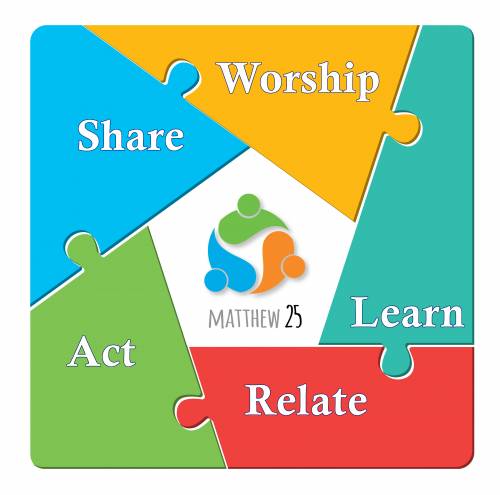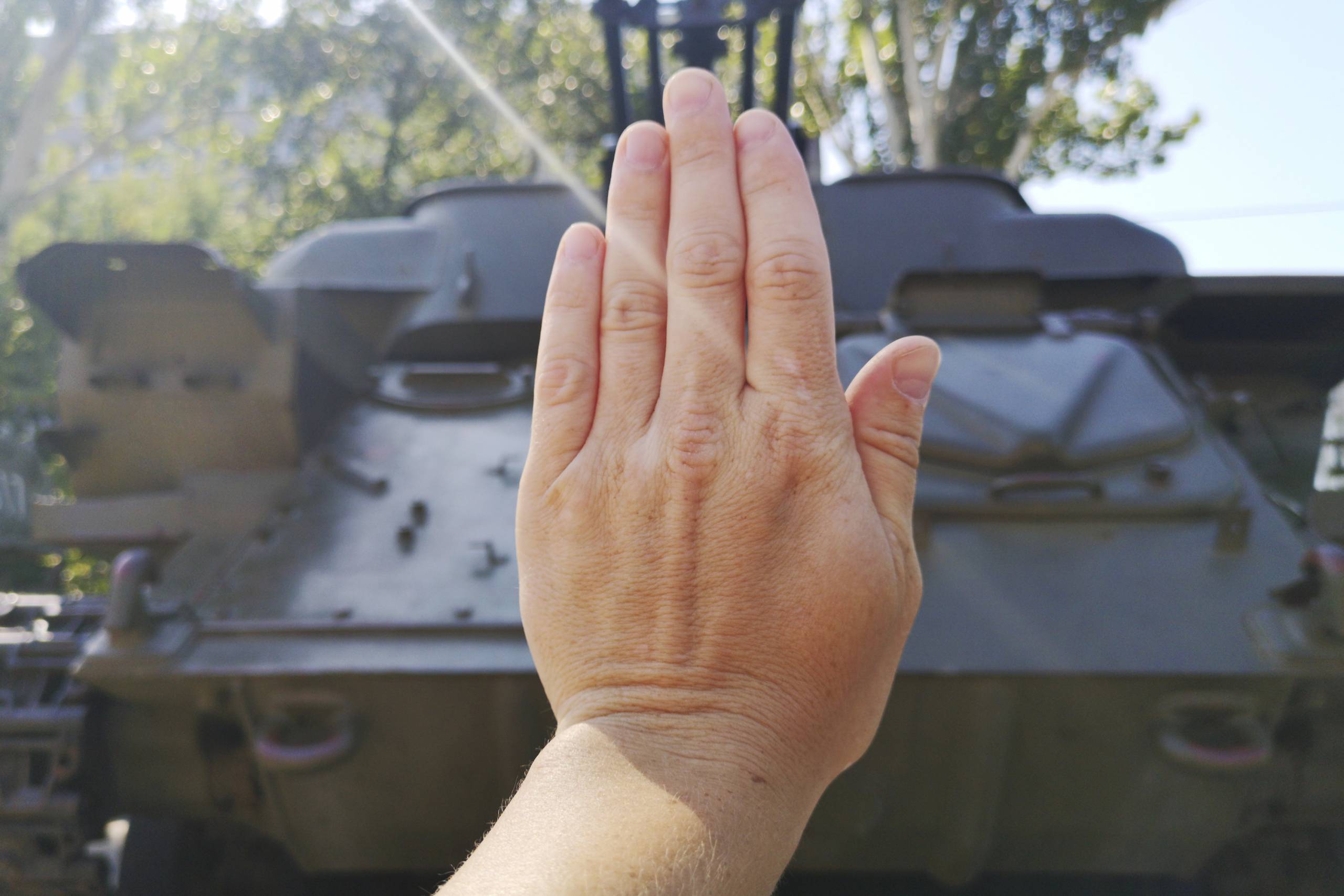In 2022, the Presbyterian Mission Agency recognized three intersectional priorities that will fully connect to the current Matthew 25 foci of dismantling structural racism, building congregational vitality and eradicating systemic poverty. These three intersectional priorities are: climate change, militarism, and gender justice/heteropatriarchy.
“Intersectionality” is a term coined by Kimberlé Crenshaw in 1989 to describe “the complex, cumulative way in which the effects of multiple forms of discrimination combine, overlap or intersect, especially in the experiences of marginalized individuals or groups.” In the same way, these “intersections” provide critical overlays for the Presbyterian Mission Agency’s priorities (building congregational vitality, dismantling structural racism and eradicating systemic poverty).
These intersections were identified in the Presbyterian Mission Agency’s strategic visioning process as persistent and serious threats to the well-being of communities thrust to the margins. However, simply identifying them is not enough. Working with our ecumenical partners, we are committed to preserving and enhancing the future of humanity and indeed all Creation.
Militarism
The General Assembly has offered much language related to militarism over the years. In 2010 it initiated the Peace Discernment Process which produced a number of papers, studies, and resources for congregations throughout the PC(USA). Other General Assemblies in 1980, 1982, 1998, 2004, 2008, 2010, 2012 and 2014 weighed in on issues around militarism in the areas of peacemaking, human rights, drone warfare, divestment related to war and militarism, and ways to support our international partners in the disproportionate ill-effects of militarism on their local communities. The foundation for our concerns around policing and militarism in the United States is found in the PC(USA) policy paper on gun violence approved by the General Assembly in 2010.
Militarism is a term that is misunderstood by many, but refers to a “system of beliefs, political priorities and economic investments.” Militarism is often correlated with inordinate expenditures on weapons, undue influence by the defense establishment on setting national priorities, and the suppression of human need and legitimate protests of evils committed against underserved communities. The domestic impacts of militarism are often overlooked but can be seen in militarized police forces and the demonization of the “other” to justify denial of human rights to repressed peoples and inequality of treatment for marginalized populations.
We examine and confront militarism through the lens of the Christian faith from a variety of intersectional perspectives, including racism, poverty, climate change and gender oppression. Recognizing the unique resource of specialized ministers serving and having served as chaplains in the uniformed services, the Presbyterian Mission Agency will invite their expertise alongside longtime international and domestic partners to engage in education, advocacy and partnership within and beyond the PC(USA) to address the dangers and impacts of a militaristic mindset from a Christological perspective.
For current resources, see: https://www.presbyterianmission.org/ministries/peacemaking/confronting-militarism/. For suggestions of staff speakers who participate in the militarism working group of Presbyterian Mission Agency, or for other questions and resources, connect with the Peacemaking Program Coordinator Carl Horton carl.horton@pcusa.org.
CURATED RESOURCES
 Worship
Worship
Utilize sermon suggestions, hymns, and prayers from the Companion Guide to the Commitment to Peacemaking related to violence and global security (beginning on page 23).
Incorporate the Confession of 1967 into your worship. This confession (particularly section 9.45 b.) focuses on the theme of reconciliation and includes powerful words about the church’s responsibility to be an advocate for international cooperation and peace and to be a critic of unbridled nationalism.
Learn:
Explore militarism from militarism from a variety of intersectional perspectives through the lens of the Christian faith in the “Connecting the Dots” Webinar Series, organized by the PCUSA’s Militarism Working Group.
Examine the Poor People’s Campaign state-by-state statistics and information about militarism and see the policies that amplify poverty, racism and environmental degradation in your state.
Attend a webinar or training from The Soul Repair Center at Brite Divinity School, which educates the public about the ways we can enable the return to ordinary life of those who experience moral injury, such as our veterans.
Relate
Study the Curriculum for Peace Church Discernment to explore your personal and your congregation’s perspectives regarding nonviolence, war, and the place of the military in our society. A Peace Church recognizes that war and militarism are inconsistent with the Gospel of Christ and Jesus’ example of nonviolence, and it confesses that the Christian Church has historically been complicit in the world’s violence. If moved, your congregation can declare itself a Peace Church in the PCUSA, using materials outlined in the curriculum and online.
Act
One way to stand against militarism in our society is to declare one’s self as a Conscientious Objector. A conscientious objector is one who is opposed to serving in the armed forces and/or bearing arms on the grounds of moral or religious principles. Persons who are selective objectors should keep a record of their beliefs and activities and should file a copy with the Stated Clerk in the Office of the General Assembly. More information is available from the Office of the General Assembly. Churches can offer communities of support for Conscientious Objectors.
Take action in your community to prevent gun violence. Consider hosting a Guns to Gardens event to turn unwanted firearms into garden tools rather than returning them to the gun market. You can also contact your representative in the U.S. Congress and ask that they support: 1) Universal background checks and waiting periods for all gun purchases; and 2) A ban on semiautomatic assault weapons, armor piercing handgun ammunition, and .50 caliber sniper rifles. More information can be found on the gun violence prevention webpage.
Share
If you’re in the US military and are interested in seeking discharge or reassignment as a Conscientious Objector, contact the Center on Conscience & War to seek help as you navigate the complex admin process.
Share about the Korea Peace Appeal and collect signatures to support a peaceful resolution to the conflict in Korea through a Korean-led peace process.

